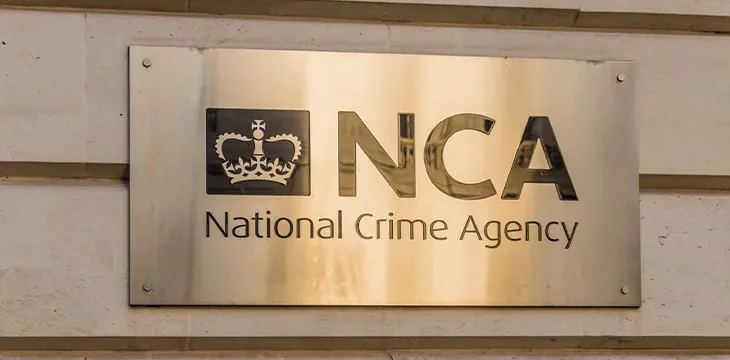|
Getting your Trinity Audio player ready...
|
Criminals who use BTC and other digital currencies often try to evade detection by using coin mixers. This week, the U.K.’s National Crime Agency (NCA) has called for a crackdown on this technology which it says can disguise transactions that would otherwise be traceable on the blockchain.
What the NCA wants from regulations
The NCA is clearly aware of coin mixers and how they work. Gary Cathcart, the NCA’s Head of Financial Investigations, described how mixers could be used in the same way that cash businesses are often used by criminals to legitimize ill-gotten gains and move them into the financial system.
The NCA called for regulations that would make coin mixing services comply with money-laundering laws. This would involve carrying out customer checks and conducting audit trails of funds within mixing platforms.
Once again, the law is coming to the digital currency space
You can bet your bottom dollar that if the U.K.’s NCA is aware of coin mixers and the problems they pose for law enforcement, so are other similar agencies worldwide. Indeed, we’ve already seen one high-profile arrest associated with mixing technology. In early 2021, Roman Sterlingov, the alleged operator of Bitcoin Fog, was arrested in Los Angeles.
The NCA’s call for regulations to deal with coin mixers is not a surprise to anyone who has been paying attention. Cracking down on this behavior is a trend that has been at play in the digital currency space for several years now. To give but a few examples, SEC Chairman Gary Gensler has vowed to end the ‘Wild West era’ of the industry, the European Union has banned anonymous transactions, and many different countries have either regulated digital currencies or have outright banned them.
How is the industry responding? The general reaction is a far cry from the poke the man in the eye rhetoric that many in the space live by. Here are a few recent examples to emphasize the point:
- When asked to blacklist wallets associated with the Canadian trucker protests, FINTRAC-licensed exchanges complied immediately.
- Digital currency lending services like BlockFi are beginning to refuse ‘tainted coins’ on their platforms.
- zkSNACKs, the firm behind a privacy-focused wallet called Wasabi, said it will bar some BTC transactions from using CoinJoin.
It’s becoming clear that most in the industry are choosing to comply with the law rather than fight it.
Cracks appear in the popular narratives as the industry changes

As well as raising questions about the alleged ‘decentralization’ of digital currencies and blockchains, these events show that when push comes to shove, most operators in the digital currency industry will comply with legal orders and requests. Despite what they might otherwise say, exchange operators, wallet providers, and others will comply with whatever laws they have in order to keep the gravy train on the tracks.
Predictably, this will cause some of the die-hards to ask awkward questions. After all, if it’s not decentralized, you can’t spend it anywhere, and it can be rendered useless with the stroke of a pen if not outright confiscated; what’s it all about?
The quickest will wake up and realize that Satoshi Nakamoto’s peer-to-peer electronic cash system was never intended to facilitate drug sales, money laundering schemes, or giveaway scams. It was never meant to be put through coin mixers to make life difficult for law enforcement agencies. It was designed to be fully traceable electronic cash that could enable small, casual transactions at scale.
As the cracks in the old narratives begin to appear and crackdowns on technology like coin mixers show that the law can and will have influence over the space, new narratives will start to take hold. Soon, the old ones will fade away completely, and the new era of utility, massive scaling, regulatory compliance, and real, legitimate use cases will take their place.
Developers, investors, and businesses in the space should prepare for this new era and decide what blockchain to develop on accordingly.
Watch: CoinGeek New York panel, Government & Public Sector Applications on Blockchain

 07-15-2025
07-15-2025 





